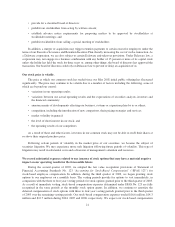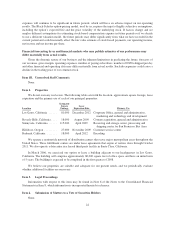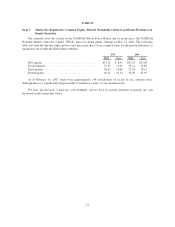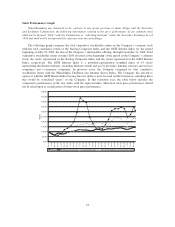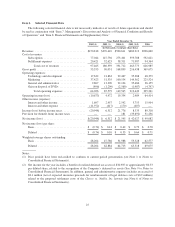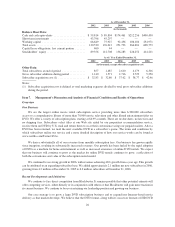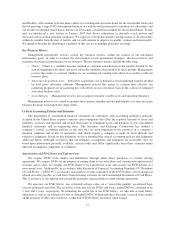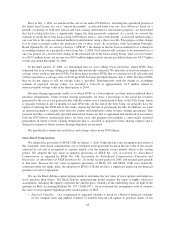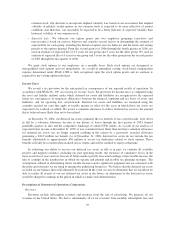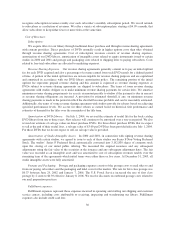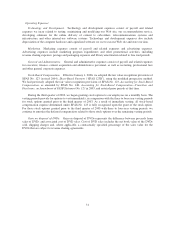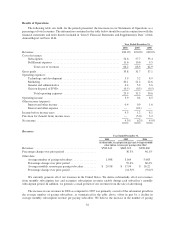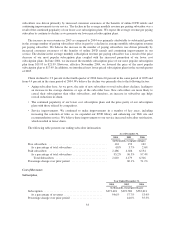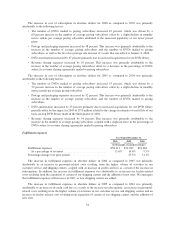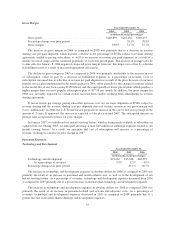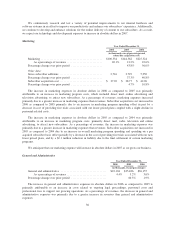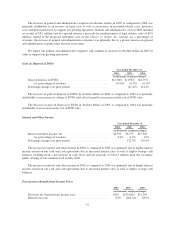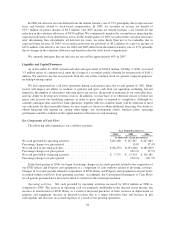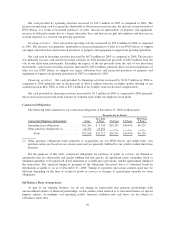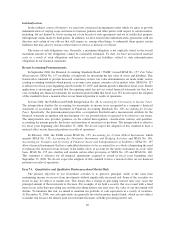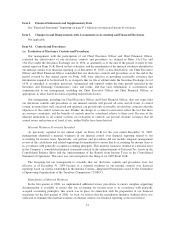NetFlix 2006 Annual Report Download - page 39
Download and view the complete annual report
Please find page 39 of the 2006 NetFlix annual report below. You can navigate through the pages in the report by either clicking on the pages listed below, or by using the keyword search tool below to find specific information within the annual report.Operating Expenses:
Technology and Development. Technology and development expenses consist of payroll and related
expenses we incur related to testing, maintaining and modifying our Web site, our recommendation service,
developing solutions for the online delivery of content to subscribers, telecommunications systems and
infrastructure and other internal-use software systems. Technology and development expenses also include
depreciation of the computer hardware and capitalized software we use to run our Web site and store our data.
Marketing. Marketing expenses consist of payroll and related expenses and advertising expenses.
Advertising expenses include marketing program expenditures and other promotional activities, including
revenue sharing expenses, postage and packaging expenses and library amortization related to free trial periods.
General and Administrative. General and administrative expenses consist of payroll and related expenses
for executive, finance, content acquisition and administrative personnel, as well as recruiting, professional fees
and other general corporate expenses.
Stock-Based Compensation. Effective January 1, 2006, we adopted the fair value recognition provisions of
SFAS No. 123 (revised 2004), Share-Based Payment (‘SFAS 123R”), using the modified prospective method.
We had previously adopted the fair value recognition provisions of SFAS No. 123, Accounting for Stock-Based
Compensation, as amended by SFAS No. 148, Accounting for Stock-Based Compensation—Transition and
Disclosure, an Amendment of FASB Statement No. 123 in 2003, and restated prior periods at that time.
During the third quarter of 2003, we began granting stock options to our employees on a monthly basis. The
vesting periods provide for options to vest immediately, in comparison with the three to four-year vesting periods
for stock options granted prior to the third quarter of 2003. As a result of immediate vesting, all stock-based
compensation expense determined under SFAS No. 123 is fully recognized upon the grant of the stock option.
For those stock options granted prior to the third quarter of 2003 with three to four-year vesting periods, we
continue to amortize the deferred compensation related to those stock options over the remaining vesting periods.
Gain on disposal of DVDs. Gain on disposal of DVDs represents the difference between proceeds from
sales of DVDs and associated cost of DVD sales. Cost of DVD sales includes the net book value of the DVDs
sold, shipping charges and, where applicable, a contractually specified percentage of the sales value for the
DVDs that are subject to revenue sharing agreements.
31


